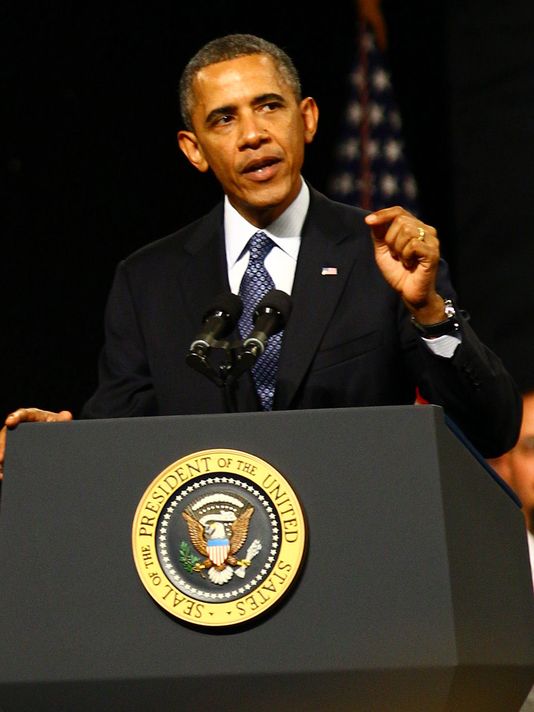Religious Freedom Is a Tenet of Foreign Policy, Obama Says
< < Go Back
 President Obama on Thursday scolded China, Iran, North Korea and other countries known for repressing religious minorities and declared that promoting freedom of faith around the world was a central goal of American foreign policy.
President Obama on Thursday scolded China, Iran, North Korea and other countries known for repressing religious minorities and declared that promoting freedom of faith around the world was a central goal of American foreign policy.
Speaking at the annual National Prayer Breakfast, Mr. Obama singled out the government in Beijing and urged it to do more to allow Christians and others to worship. He also called on North Korea to release a Christian missionary held for the last 15 months and insisted that Iran release a Christian pastor held for more than 18 months.
“History shows that nations that uphold the rights of their people, including the freedom of religion, are ultimately more just and more peaceful and more successful,” Mr. Obama told a hotel ballroom audience of 3,500 people. “Nations that do not uphold these rights sow the bitter seeds of instability and violence and extremism. So freedom of religion matters to our national security.”
The president used the breakfast to lavish praise on Pope Francis, whom he plans to visit at the Vatican next month and whose messages on economic injustice around the world have coincided with Mr. Obama’s focus on income inequality in the United States.
Mr. Obama’s attention to religious freedom issues has sometimes been criticized. He did not nominate someone to fill the congressionally authorized position of ambassador at large for international religious freedom until the summer of his second year in office and his eventual nominee, Suzan Johnson Cook, was not confirmed until April 2011.
She stepped down in October and has yet to be replaced. Mr. Obama had no nominee to announce by Thursday’s breakfast and so was left to promise vaguely that he looks forward to nominating a replacement, offering no timetable.
Mr. Obama said he had been “elevating our engagement with faith leaders and making it a regular part of our diplomacy” and cited several nations in particular, including Burma, Nigeria, Sudan, South Sudan, Pakistan, Egypt and Syria.
In discussing China, he tempered his criticism in recognition of other American interests in working with Beijing.
More From The New York Times:



